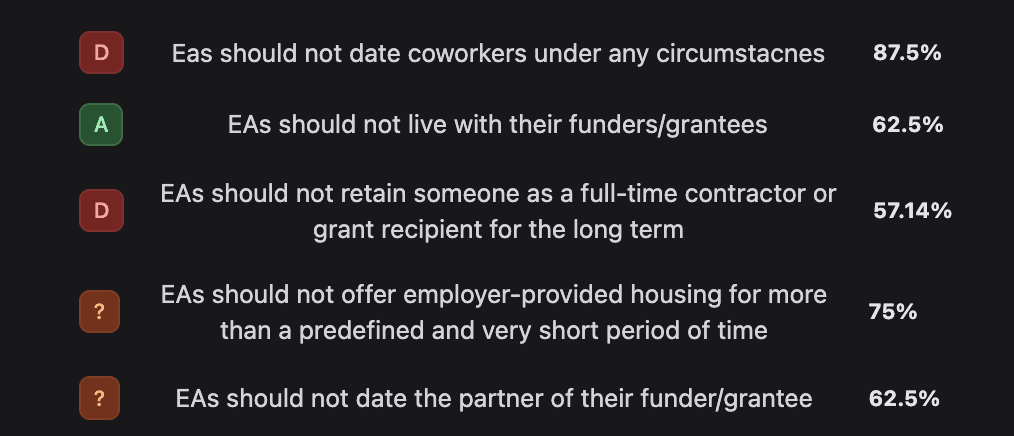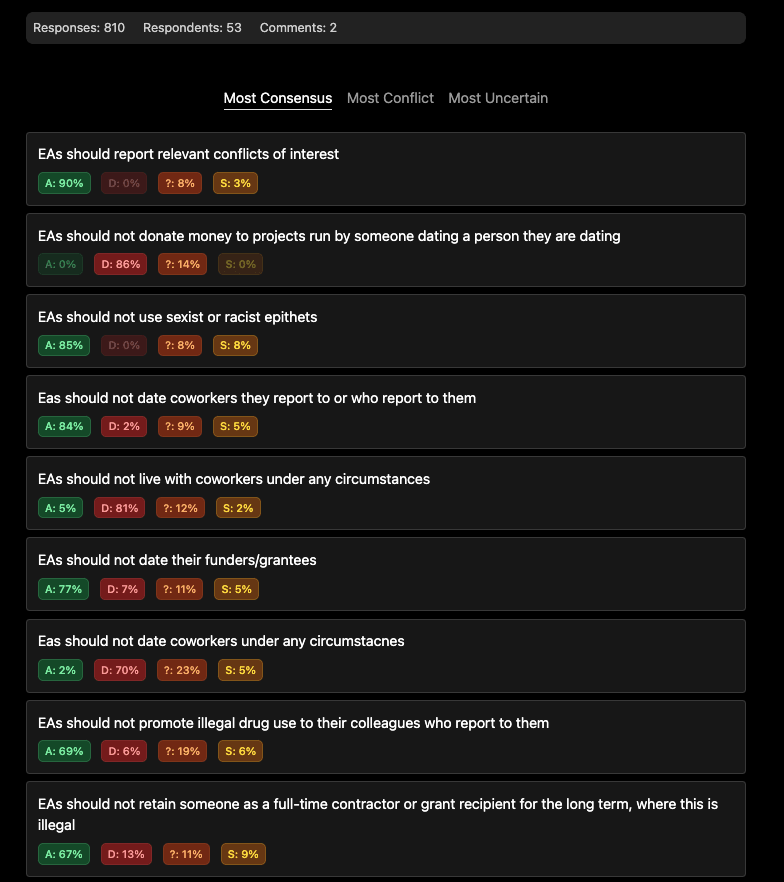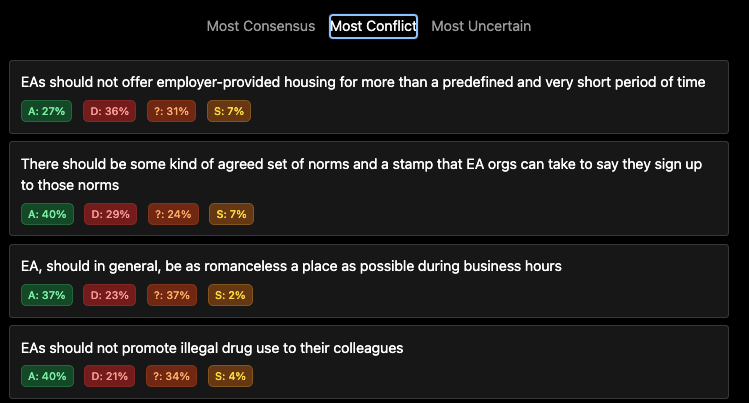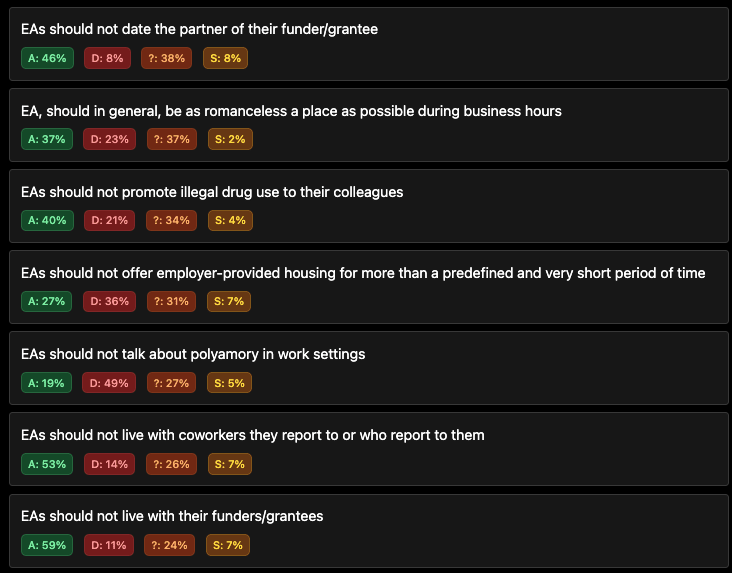There has already been ample discussion of what norms and taboos should exist in the EA community, especially over the past ten months. Below, I'm sharing an incomplete list of actions and dynamics I would strongly encourage EAs and EA organizations to either strictly avoid or treat as warranting a serious—and possibly ongoing—risk analysis.
I believe there is a reasonable risk should EAs:
- Live with coworkers, especially when there is a power differential and especially when there is a direct report relationship
- Date coworkers, especially when there is a power differential and especially when there is a direct report relationship
- Promote[1] drug use among coworkers, including legal drugs, and including alcohol and stimulants
- Live with their funders/grantees, especially when substantial conflict-of-interest mechanisms are not active
- Date their funders/grantees, especially when substantial conflict-of-interest mechanisms are not active
- Date the partner of their funder/grantee, especially when substantial conflict-of-interest mechanisms are not active
- Retain someone as a full-time contractor or grant recipient for the long term, especially when it might not adhere to legal guidelines
- Offer employer-provided housing for more than a predefined and very short period of time, thereby making an employee’s housing dependent on their continued employment and allowing an employer access to an employee’s personal living space
Potentially more controversial, two aspects of the community I believe have substantial downsides that the community has insufficiently discussed or addressed:
- EA™ Group Houses and the branding of private, personal spaces as “EA”
- "Work trials" that require interruption of regular employment to complete, such that those currently employed full-time must leave their existing job to be considered for a prospective job
As said, this list is far from complete and I imagine people may disagree with portions of it. I’m hoping to stake this as a position held by some EAs and I’m hoping this post can serve as a prompt for further discussion and assessment.
- ^
“Promote” is an ambiguous term here. I think this is true to life in that one person’s enthusiastic endorsement of a drug is another person’s peer pressure.





I conditionally disagree with the "Work trials". I think EA companies doing work trials is a pretty positive innovation that EA in particular does that enables them to hire for a better fit than not doing work trials. This is good in the long run for potential employees and for the employer.
This is conditional on
I can anticipate some reasonable disagreement on this matter but it seems to me it's not so unreasonable to give these work trials even if they last long enough that it requires the candidate to take a few days of leave off work. Being paid for the trial itself should compensate for the inconvenience. More than a week of time seems like it should have even stronger justification and I wouldn't endorse that.
Although I understand this process would still require some inconvenience to the candidate and their current employer, on balance, if the candidate is well-paid, it seems like a reasonable trade-off to ask for, considering the benefit to the candidate and the employer for finding a good fit.
I think that distinguishing between 1-8 hours (preferably paid), up to 40 hours, and 1-6 months, is very important here. I am happiest about the shortest ones, particularly for people who have to leave a job (part of why I think that OP is talking about the latter sort).